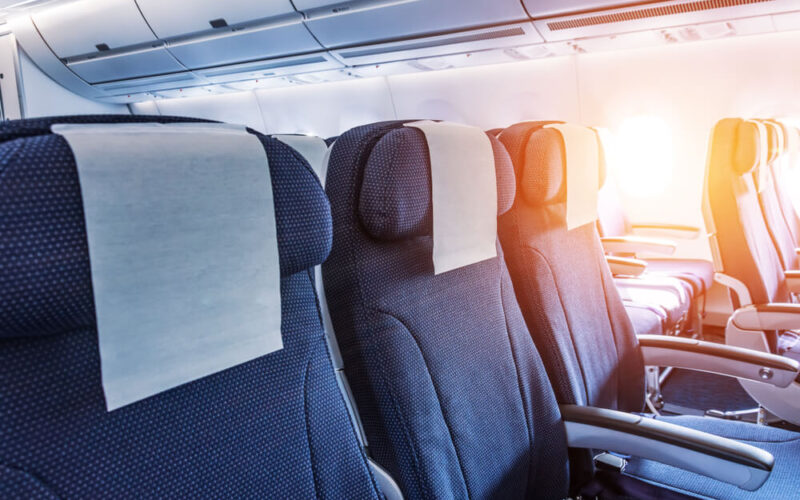A new study conducted by the US Centres for Disease Control and Prevention (CDC) and Kansas State University suggests that air carriers’ measure to block middle seats onboard aircraft provides passengers more protection from being infected with the COVID-19 virus.
The study released on April 14, 2021, indicates that a specific distancing strategy keeping middle seats vacant helps to prevent virus transmission. In order to measure the possible flow of the virus particles through an aircraft cabin, a group of researchers used mannequins that emitted aerosol. The research showed that when middle seats were kept vacant, the risk of getting infected with the virus was reduced by 23% to 57% in comparison to the fully booked flight.
However, the study did not take into account the risk probability when passengers wear face masks while onboard an aircraft. The research also did not calculate the risk when passengers are vaccinated against the COVID-19.
“A 23% exposure reduction was observed for a single passenger who was in the same row and two seats away from the SARS-COV-2 source, rather than in an adjacent middle seat. When quantifying exposure reduction to a full 120-passenger cabin rather than to a single person, exposure reductions ranging from 35.0% to 39.4% were predicted,“ read the study.
“A 57% exposure reduction was observed under the vacant middle seat condition in a scenario involving a three-row section that contained a mix of SARS-CoV-2 sources and other passengers. Based on this laboratory model, a vacant middle seat reduces the risk for exposure to SARS-CoV-2 from nearby passengers. […] Physical distancing of airplane passengers, including through policies such as middle seat vacancy, could provide additional reductions in SARS-CoV-2 exposure risk,“ it concluded.
However, some of the air carriers in the US, such as Southwest Airlines (LUV), which terminated the policy in September 2020, do not implement the middle seat blocking policy anymore and continue to sell every single seat onboard aircraft. Airlines argue that specific air-flow systems and filters installed in jets, the mandatory requirement to wear face masks while in-flight, and precise cabin cleaning are sufficient measures to keep the transmission risk at a low level.
Delta Airlines (DAL) was the first air carrier in the US to put in place the middle seat blocking policy and limit its capacity in April 2020. Other American air carriers, including JetBlue Airways, Southwest Airlines (LUV), and Alaska Airlines, had been implementing the same measure, but in fall 2020, the companies have begun returning to selling all seats onboard. For instance, the abovementioned Delta has committed to keeping blocking middle seats through April 2021 but is expected to terminate the policy from May 1, 2021.

